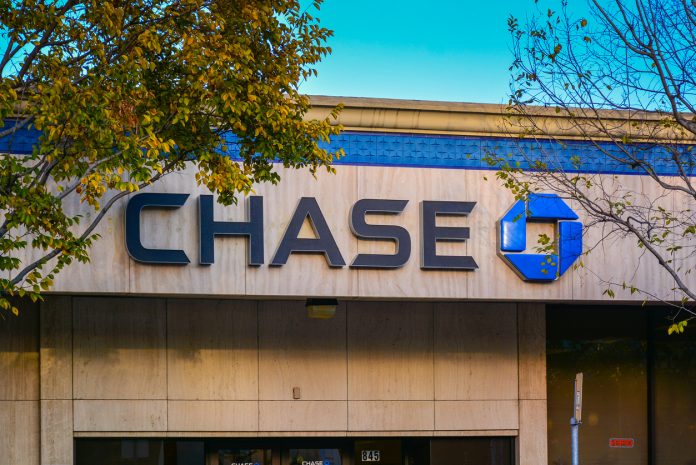If interest rates no longer enthuse you, and you’re up to your nose in credit card debt, it might be time for a fresh start. In that case, a balance transfer credit card could be the answer you’re looking for. The concept of using a card to pay off another card may seem odd and even detrimental to the objective of financial freedom. However, if done strategically and with proper knowledge, you can benefit from low-interest rates, fewer penalties, and, most importantly, paying off debt.
What is a Balance Transfer Credit Card?
A balance transfer credit card lets consumers transfer their outstanding funds to a card with a lower interest rate. Having a low-interest rate allows you to save while also paying off debt. You can pay off auto loans, student loans, and other types of debt.
Balance Transfer with Chase
Chase offers two excellent balance transfer cards. The Freedom Unlimited card has cashback rewards and no annual fee. Chase also offers the Chase Freedom card, which likewise doesn’t have an annual fee.
The Basics of Using a Balance Transfer Card
A good-to-excellent credit score is ideal for a 0 % introductory APR. Be aware that some cards have transfer fees, such as the 3% fee that occurs for the first 60 days. After those days are up, the balance transfer fees turn into a %5 fee with a minimum of $5. This applies to the Chase Freedom Unlimited card. There’s also a foreign transaction fee of 3% when traveling abroad. With the Freedom Unlimited card, there’s a 15-month time limit before the 0% APR offer runs out. It’s important to remain diligent and stay on top of your payments like you would with any credit card.
Suggested Reading: Bad Credit Business Loans: Here’s Why You Need Them
The 5/24 Rule
Specific rules are set in place when you apply for a credit card. With Chase Freedom cards, there’s an unwritten “5/24” rule. If you open five credit cards within a 24-month time frame, then you’re put on a credit card time out. If you’re an authorized user for another person’s card, it’ll also count toward the five-card limit. There are, however, some exceptions to the 5/24 Rule:
- Small business cards (from major card issuers)
- If you are a Chase Private Client
- Denied cards aren’t counted toward the 5/24
- Store cards (Ex. Macy’s, JCPenney). This is due to their use of in-store purchases only
- Loans such as student, car, or other personal loans
Two Ways to Know the Status of Your 5/24
There are two ways for you to know the status of your 5/24. First off, you can check your credit score. Luckily, this is easy enough with a free credit score reporting service. Credit Karma offers a free tool with several additional benefits, and we highly recommend it.
If you’re already with Chase Bank, there’s another way to check your 5/24 status. Head to the Chase Credit Journey page, and sign up. It’s free, and you can use your smartphone device to access the page through the Chase app or website.
Freedom vs. Freedom Unlimited
There is no doubt that both Chase’s Freedom and Freedom Unlimited cards rank highly. However, there are key differences between them to keep in mind when you are choosing a card:
- Chase Freedom offers 1% cashback rewards from purchases, while Chase Freedom Unlimited has 1.5% in cash rewards every time you spend. The Freedom Unlimited card also has the Chase Unlimited card rewards program.
- Chase Freedom Unlimited has a higher percentage of cashback rewards, but the Chase Freedom card throws in 5% in cashback rewards on rotating bonus categories. Rotating bonus categories are issued to users quarterly. Use your card for purchases in the specific categories, and you’ll earn more rewards. You can activate your rewards from the Chase Mobile App. What’s even better? Your rewards don’t expire.
The take-home message is that both cards function virtually the same. They both have no annual fee, and a long intro APR period. What it boils down to is the reward programs and preference.

Learn How to Score the Best Checking Account Rates
How to Qualify for Chase Freedom Unlimited
Though it helps, a good credit score won’t always be enough to get you through the door. Several factors are evaluated to qualify for the Chase Freedom Unlimited card. If you want to increase your chances of approval, improve your credit score, and keep the following points in mind.
Open Cards
Having a substantial number of active credit cards shows that you may not be the most responsible when it comes to money. Owning a lot of cards can also indicate that you acquire cards solely for the perks that come with signing up. You want to let banks know that you are consistent and trustworthy when it comes to using their cards. If this is your first credit card, Chase will look at you less critically.
Hard Inquiries
Whenever a lender checks your eligibility for a loan or credit card, they issue what is called a hard inquiry. A hard inquiry directly impacts your credit score and sticks to your credit history for some time. A large number of hard inquiries can even cause your score to dip significantly, putting it into the red zone.
Total Credit Limit
The amount of credit that a card issuer will loan to you is called your total credit limit. Your income and general financial health determine the amount. Factors that make up your financial well-being:
- Net-worth
- Insurance coverage
- Amount of savings
- Amount of debt accumulated
Credit Utilization
The balance left over from your total credit limit determines your credit utilization. Credit utilization is essential because it lets financial institutions know how well you manage money. Credit utilization affects your credit score, which in turn determines your eligibility for a Chase Freedom card.
Read More: Best Home Mortgage Lenders
Picking a Card
Let’s say you qualified for the Chase Freedom Unlimited card, but you are still on the fence on whether this is the best card for you. First, look into and understand your spending habits. For example, earning 1.5% cashback on qualified purchases is excellent for everyday spenders. Upon signing up, you earn a bonus of $150 if you spend $500 within the first three months of owning your Freedom Unlimited card. With the ultimate rewards program, cash rewards won’t expire as long as your account is open. If you don’t want to use your rewards points right away, simply store them for later.
What makes the Freedom Unlimited card awesome is the variety of ways points can be redeemed. Just be sure to check the Chase Portal to see what options are available to you. Major retailers such as Amazon can take the points and apply them as payment, directly to your order. You can also travel using your reward points or reclaim them as gift cards. The program uses a penny-per-point system redemption rate. Unlike other credit cards, the ultimate rewards points system saves you more, even as you spend. Better yet, you can redeem your points as straight-up cash.
Why Not Both?
Why not get the best of both worlds and experience cashback bonuses and rack up enough points to redeem cash- all while enjoying no annual fees. You can use the Chase Freedom Unlimited card to earn 1.5% back on every purchase, and the Chase Freedom card to access 5% cash bonuses on rotating categories. With the holidays coming up, getting these rewards is a gift that keeps on giving.
Credit Cards for Students
Students, particularly, can benefit from saving with the Chase Freedom card. On average, college students have little to no credit history and typically live on low-income (books aren’t cheap). Usually, college is when individuals start diving more into the world of finances. The Chase Freedom Unlimited card is an excellent introduction to credit cards. Students can build credit and earn cashback rewards while receiving those A’s. By the time graduation comes around, students will already have the credit they need to qualify for low-interest rates on cars and homes.

Suggested Reading: Mortgage Rates: Important Things to Know
Waiting Time for Your Credit Card Approval
You decided to apply, and now it’s time to play the waiting game. Usually, it takes a maximum of 10 business days to review a credit card application. However, some circumstances can call for a longer wait, even as long as 30 days. If you want to check the status of your request, call Chase customer service at 1-800-432-3117.
The Wrap Up
With the Chase Freedom Unlimited card, the possibilities are endless:
- 0% introductory APR for 15 months
- 1.5% cashback on every purchase
- $150 when spending $500 within the first three months
When it comes to the Chase Freedom Card:
- 5% cashback from quarterly bonuses
- Receive 1% cashback on all purchases
And to top it all off, there is no annual fee. Period.
If you have any questions about the Chase Freedom Unlimited or Freedom cards, be sure to leave them in the comments. Also, if you want to learn more about other Chase credit cards, click here.
Best of luck on your credit card journey!

